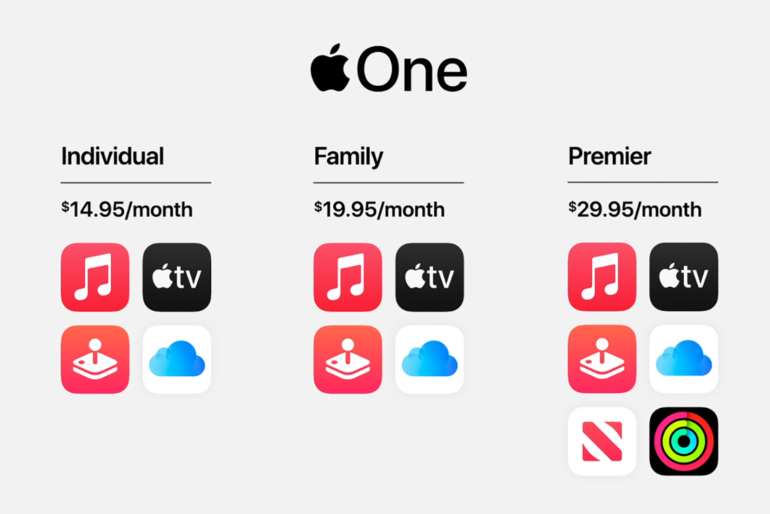In the past year, Apple has been the target of escalating disputes levied against it from midsized productivity vendors such as Basecamp and global media giants such as Spotify, Match Group, and, most vocally (and visually) Epid Games. These companies challenge Apple’s authority to set the rules that govern its app store and allege that Apple’s restrictions result in an unfair advantage for its own services. Several have banded together into a Coalition for App Fairness. If adopted, its 10 app store principles could cause Apple to forfeit revenue and control, including control of and protection of the user experience. That said, while none of the principles would pose an existential threat to Apple’s business, a related set of app store challenges could ultimately have a far greater impact on Apple: those that the company faces from cloud gaming services offered by its ecosystem rivals Amazon, Google, Microsoft, and now Facebook.
Both massively multiplayer games and cloud gaming services have been around for many years. However, the latter has not seen the kind of breakout success defined by games such as Fortnite and iOS’ s new bestie League of Legends. Years before even 4G networks were common in the U.S, Apple alum Steve Perlman started cloud-based gaming service OnLive. That was followed by services such as Gaikai (acquired by Sony and merged with OnLive’s assets) and, more recently, Shadow by Blade. By processing all of the gameplay in the cloud, these services can deliver a gameplay experience that far transcends what a client device could render locally. The catch? The speed and latency of the connection must support the illusion that the gameplay is local without unduly compromising resolution or frame rate. And meaningful lag in control of the game is a deal breaker. Now, Amazon, Microsoft and Google have all stepped up with their own cloud game services.
Microsoft’s entry stands out given that Windows and Xbox are already target platforms for some of the most performance-demanding games. But cloud gaming allows it to extend that developer relationship onto mobile, where it has no platform presence, as well as to the many televisions that aren’t connected to an Xbox, much less its latest generation. Similarly, cloud gaming enables a richer and simpler to optimize gameplay experience to PCs that lack the thunder of an e-sports championship rig. Ultimately, though, games are a small business for Microsoft, and cloud gaming serves to test Azure with some of the most demanding processing required for a large-scale consumer app. If Microsoft can make cloud gaming a joyous experience on mobile, there’s little it can’t do the same for. That’s a key goal it shares with Amazon and Google, which have less of a game franchise to protect.
This brings us back to Apple, which has a subscription gaming service, but not a cloud gaming service. Indeed, more of the conflict with its game-streaming rivals comes down to business model, not where the games live. Apple is asking cloud gaming services to abide by the same rules it uses for Apple Arcade; each game must have a separate app store entry and be reviewed by Apple. While Apple is asking no more of the cloud gaming services than it requires of apps in its own gaming service, the requirements impose a lack of fluidity that would seem stifling in a service like Xbox Game Pass, a buffet-style game service offering that houses Microsoft’s cloud-gaming service. Much has been made of Apple’s different set of standards for video and music content versus games (because code), but imagine if Apple asked all of the “buffet-style” on-demand streaming offerings such as Prime Video, Hulu, HBO Max, Peacock, and Netflix to submit each of its movies — or perhaps even individual TV show episodes — for approval. Not long ago, Apple sold them that way exclusively back in the heyday of the iTunes Store.
Cloud gaming services may prevail or fail regardless of Apple’s actions. But it’s clear that they keep improving as cloud architectures advance and especially wireless networks achieve higher speed and lower latency. Longer term, the real challenge for Apple would come if all apps were hosted in the cloud. There are already smartphone OSes pursuing this. Then what comes of Apple’s annual upgrade cycles promising ever-faster smartphones designed to run ever more sophisticated native software?
Such a future has been threatened for decades with virtually no progress among consumers. Indeed, Chrome OS — which at its debut carried the banner for “light” computing devices with limited processing and storage features — now runs not only Android and Linux apps, but also Windows on some enterprise-focused Intel-based models via Parallels software. On the other hand, this level of platform compatibility blurring represents just one way that companies such as Microsoft and Google are shifting from a client OS focus that runs deep in Apple’s DNA.
After all, the other Big Tech companies combined don’t drive nearly as much revenue from their own device sales as Apple. As Apple threatens the revenue streams of companies like Facebook and Google through privacy protections that jeopardize those companies’ business models, it should come as no surprise that Apple’s competitors would pursue tactics that jeopardize its platform primacy.
PREVIOUS AND RELATED CONTENT
This new smartphone OS lives in the cloud
The makers of the Puffin browser have applied their cloud expertise to a new operating system that they claim will outperform Android on low-end hardware, but its fee structure could be a deal-breaker for the next billion.Apple changes App Store rules to allow streaming game services, Xbox says not enough
The tech giant will allow game streaming services from Microsoft’s Xbox team, Sony, Google and Nvidia.League of Legends: Wild Rift coming to iPhone 12
The Apple iPhone 12’s 5G capabilities will take the game to new levels, according to Riot Games



